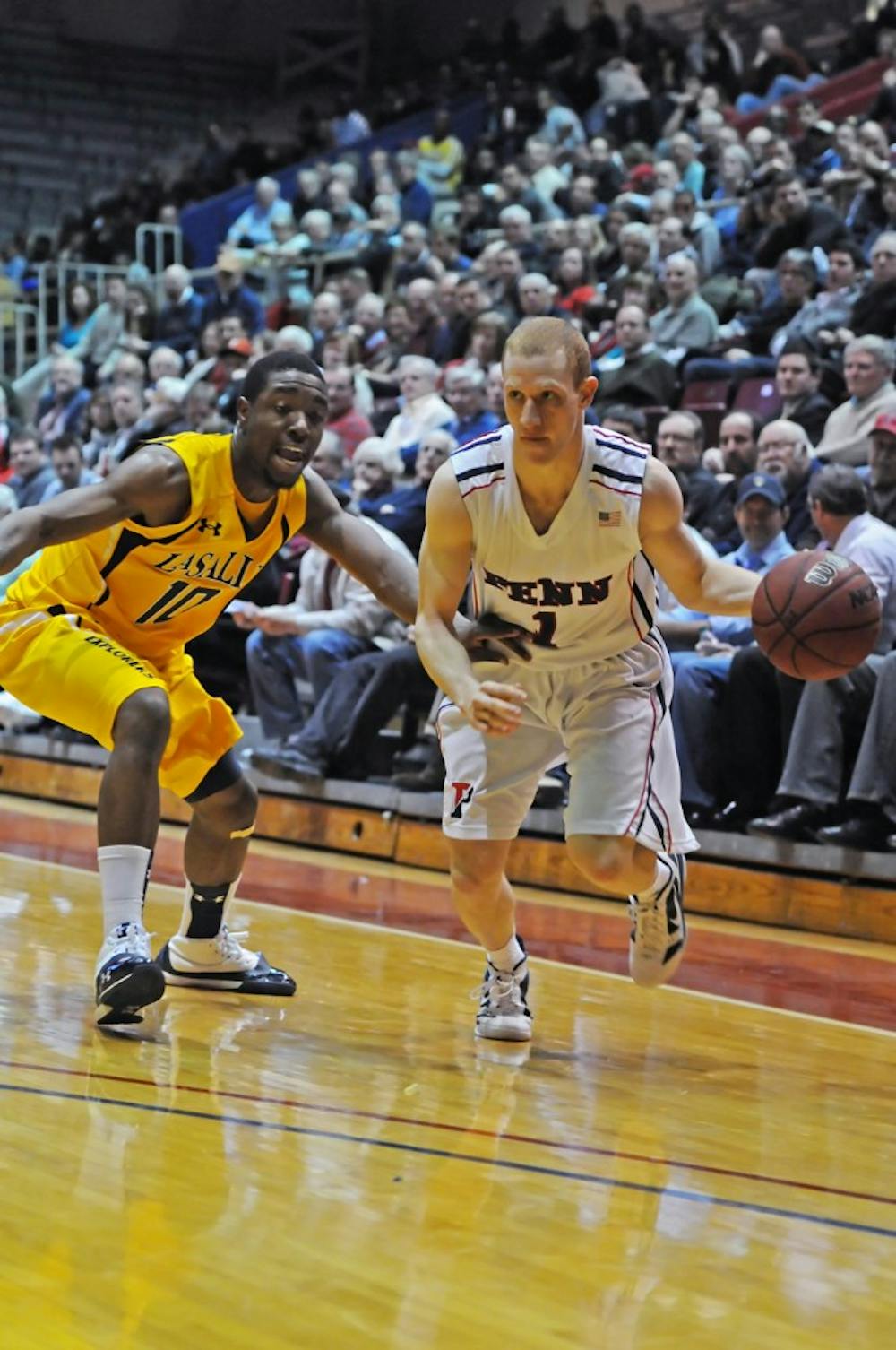
When Penn basketball coach Jerome Allen finalized his team’s 2011 non-conference schedule, he may have had one of two thoughts.
Possibility one: Under the veteran leadership of seniors Zack Rosen, Tyler Bernardini and Rob Belcore, my team will grow together as the result of playing multiple high-caliber programs. We will go into the Ivy slate confident that we can play with any team on any given day.
Possibility two: With a young and shaky frontcourt, my team will struggle to match up with post players from the nation’s best programs. By the time the Ivy season rolls around, we will feel tired and dejected and lack the confidence needed for grueling Ivy weekends.
In other words, the outcome of Allen’s strategy would be a toss-up until the non-conference schedule wrapped up and he sat down to finally study Ivy film.
Allen has reached this point. And he has spoken.
“Hopefully it helps us going forward,” Allen told the media during an Ivy teleconference this week. “But to be honest with you, I’m kind of disappointed in our results thus far playing against those teams.”
Playing the best teams in college basketball is — or so it used to be — a staple of Penn’s program. As Allen put it, “that’s all I really know.”
Still, the jury is out on how the Quakers’ first half of the season will affect the second half. Before the season began, former Penn player and current Athletic Director Steve Bilsky expressed similar positives and negatives about playing easily the toughest non-conference schedule in the Ivy League.
“If you [lose] too often,” Bilsky said, “you have to make sure you keep your confidence. Some people would argue that when you get in the Ivies, you’ll be better for it. Sometimes that doesn’t work.”
Without seeing the Quakers perform against the Ancient Eight yet, it is easy to say that constant over-matchups — and subsequent losses — didn’t “work.”
“Sometimes when you’re beaten down and you lose your confidence, it doesn’t matter who’s next,” Bilsky continued. “You learn about your players.”
Penn played five high-caliber teams in the short span of two months. Since Allen, Rosen and the rest of the Red and Blue live and die by believing there are “no moral victories,” this squad — which certainly has no shortage of talent — needed at least one tick in the win column. Against Temple, Pitt, Villanova, UCLA and Duke, the Quakers went 0-for.
The season started with a bang: an overtime loss to Temple in the earliest Big 5 game in history in front of a raucous Palestra crowd. After the loss, Rosen asserted that “everybody in that [locker] room wholeheartedly believed that we deserved to win that game, and we were good enough to win the game.”
Such a statement isn’t uncommon to hear following a loss. But Rosen’s assertion after Temple was believable. The Quakers could have pulled off the victory — they were in a position to do so — but the result didn’t go in their favor. Still, there was an air of ‘this is our year.’
But against its next top opponent, Pitt, Penn fell by 20. A struggling Villanova squad controlled the game in an eight-point victory and a drama-loving UCLA team kept Rosen in check to win by four. The Quakers had perfect opportunities to upset any (or all) of these historically powerhouse programs, but they didn’t execute.
While Duke was not likely to succumb to an upset by Penn, the 30-point blowout and the Devils’ 20-4 opening run was troubling.
Last season, the Quakers made a name for themselves by climbing out of holes in the final minutes of games. This season, the field is stronger than ever. Penn can no longer rely on late surges to win games.
No, to win games, this squad must prove that its tough first-half schedule was worthwhile.
The tournament starts now.
The Daily Pennsylvanian is an independent, student-run newspaper. Please consider making a donation to support the coverage that shapes the University. Your generosity ensures a future of strong journalism at Penn.
DonatePlease note All comments are eligible for publication in The Daily Pennsylvanian.





